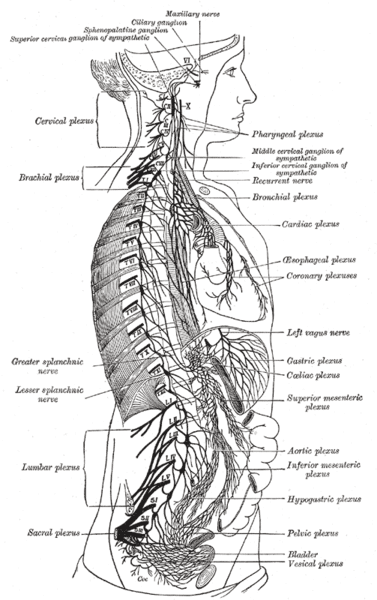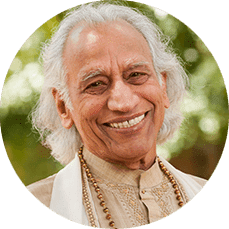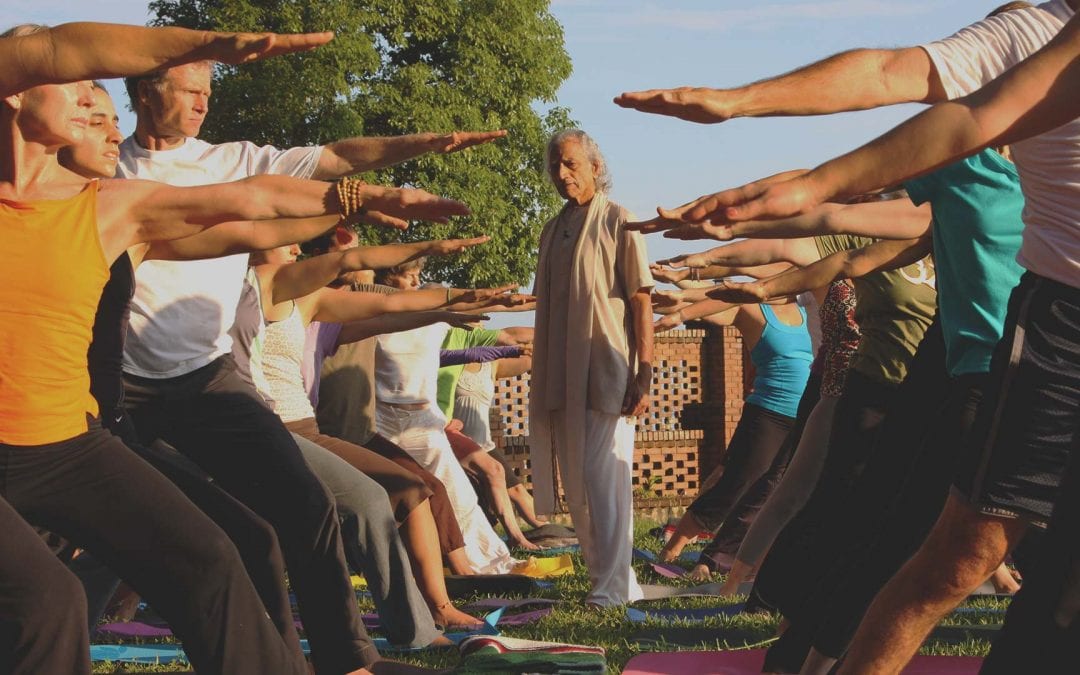When you are fully present, the simple joy of living and interacting with life arises spontaneously from moment to moment. Your ability to be fully present and experience a deep sense of health, happiness, and wellbeing depends upon the homeostatic, co-creative balance between the sympathetic and parasympathetic nervous systems in the body. The practice of I AM Yoga® teaches you how to reduce stress by restoring balance between these systems. Powerful Quantum Breath and meditation techniques are used to break down barriers in the body, resolving conflict between body and mind.

When you are engaged in compulsive past or future based thinking, you experience tension. If your sympathetic nervous system is consumed with excessive mental and emotional conflicts, you are introducing more tension than your parasympathetic nervous system can process or digest. When you are triggered and experiences confusion or indecisiveness, you become engaged in either external blame or internal shame. You may experience boredom or temporarily become a ‘couch potato.’ This creates a different kind of stress.
There are two types of stress:
- natural: the need to fulfill biological hungers such as eating, sleeping, or sex without overindulging;
- unnatural: stress that comes from the excitement of indulging in sensual pleasures such as food, sex, or alcohol.
Taking care of your biological appetites can bring a great sense of pleasure and fulfillment biologically that restores the balance, sustenance, and survival of health and wellbeing.
As people move from satisfying natural bodily hungers to desperately seeking more exciting pleasures, they create stress that prevents them from enjoying the natural joy and pleasure that come from fulfilling simple biological needs. When people excessively indulge in food or sex to experience excitement, they are building stress with each repetition of the indulgence. The more stress you build, the less you enjoy the same activity that at first provided you with pleasure.
Cocaine and heroin, for instance, increase dopamine levels in the brain. “Eating preferred foods does exactly the same thing,” Norgren says, “from the same parts of the brain.”
The Biology of . . . Appetite, From the September 2002 Issue of Discover Magazine
The more your body experiences excitement, the more insensitive it becomes. This means you cannot achieve the same excitement that you did previously. As you fail to find enjoyment at the level at which you previously experienced it, you lose your ability to enjoy. This generates a constant struggle to access a higher level of excitement. The ego-mind devises more dramatic ways to seek stimulation and relief by engaging in activities that can be hazardous to your health and wellbeing.
Once you are caught in indulgence, your addiction to stress-creating habits gets built into your routines and lifestyle. You may become manipulative in your love life, family life, work life, and social life. You constantly steer your attention towards your indulgence as the ultimate reward for the hard work that you do all day. Repeated indulgence in any form of sensual pleasure that creates stress in the body grows from pleasure, to excitement, to indulgence, to addiction, and eventually to obsession.
This is what you repeatedly see in people who have become very successful in their professional lives. Their success is no longer stimulating enough, so they seek more excitement through sex, drugs, and alcohol. Then, they become the victim of the stress they have created in the process of seeking external excitement.
If you engage in increasing your level of pleasure to excitement, you will notice that your stress rises right along with it. Such pleasurable experiences, when repeated, become addiction. Addiction begins to function outside of your ability to manage it. We often call this ‘habits.’
Every time you attempt to cope with your need for the next level of excitement by seeking external resources of excitement, your attention moves excessively outward. The energy that is needed to sustain your inner, self-balancing functions now follows your attention, which is seeking more excitement outside. Now, you are not only internally engaged in conflict but also you are seeking resolution externally to resolve your inner conflict.
Seeking love, peace and happiness from the external world creates stress that completely disconnects you from the internal source of love, peace, and bliss. When you are feeling stressed, you are deprived of feeling satisfaction and joy in living your life as it happens from moment to moment.
Natural tension and relaxation are equal and opposite.
For example, when you feel hungry, a hunger ‘tension’ is created. When you eat to fulfill your hunger, the tension is completely released. But if you eat for pleasure or to satisfy emotional hunger, you will be feeding your body beyond its natural hunger. This creates more tension than the natural relaxation response of the parasympathetic nervous system can counteract.
What is emotional hunger?
When you are unhappy, fearful, or frustrated about something or someone, you may use food, sex, shopping, work, or alcohol to alleviate the tension that the ego-mind interprets as ‘hunger.’ Every time you feed emotional hunger, you are suppressing emotions rather than releasing them. This creates only more stress because emotional hunger works against bodily felt biological hunger.
Often people try to release the energy of emotional hunger by not thinking about it (ignoring it), but they have not let go of the feeling of it. To release the emotions that create reactive thoughts in the mind and negative feelings in the body, you must disengage from reactive thoughts that appear in both body and mind. Reactive patterns live in both body and mind. What the mind builds into the body will reappear in the mind.
The subconscious is naturally designed to function in tension and relaxation. Bodily lifegiving functions manifest through the co-creative polarity of tension and relaxation. Our heart, lungs, muscles, and digestive/eliminative system all operate through the rhythm of tension and relaxation.
Humans have evolved from the level of the subconscious autonomic nervous system to the self-conscious ego-mind that actively functions through the sympathetic nervous system. When we sleep, which is our inborn survival level gift, we withdraw from the conflict-creating, stress-producing beta brainwaves of the ego-mind. Sleep allows us to be active in the external world during the day to take care of our sustenance and survival needs. This in turn allows us to rest at night so that the innate intelligence of the body can restore balance.
If you are physically and mentally active during the day, your body and mind rest during the night. The day acts like tension, and night acts as relaxation. Many people create excessive tension during the waking hours through indulgence in an ego-based, sensually driven search for excitement. It creates more tension than the body’s parasympathetic system can balance. If you create more tension than what can be balanced through sleep and relaxation of the body, it accumulates as stress. This is the cause of insomnia.
During the waking hours, the self-conscious ego-mind engages in conflict-creating, stress-producing interactions through the medium of thoughts and emotions. They manifest as compulsive, reactive ‘self-talk.’ When you are in reaction, you have no control over your inner dialogue. The more you are engaged in reactive self-talk, the farther you move away from not only the Presence, but also who or what is present.
The way we think in our mind is how we feel in our body.
All the tension that we create mentally or emotionally manifests in our body. If our thoughts are toxic and reactive, they permeate the body. The body is where we feel the feelings created by our reactive thinking ‘about’ who or what is present. The insightful teachings of I AM Yoga® give you powerful tools and techniques to withdraw from the reactive patterns and habits that create stress in the mind. This empowers you to disband their effects in the body.
Article by:

Gurudev Shri Amritji
Founder of the Amrit Yoga Institute

This is awesome!! Good job!!
Gurudev’s teachings are uncomplicated and authentic. He has helped so many of us transcend our stories about ourselves and surrender to the divine within. We have been initiated into “The Lineage of Light”. Jai Gurudev!
Where can this yoga be learnt?…..
Come visit us! We are located in Salt Springs, FL. Check out upcoming program opportunities here: https://amrityoga.org/upcoming-all